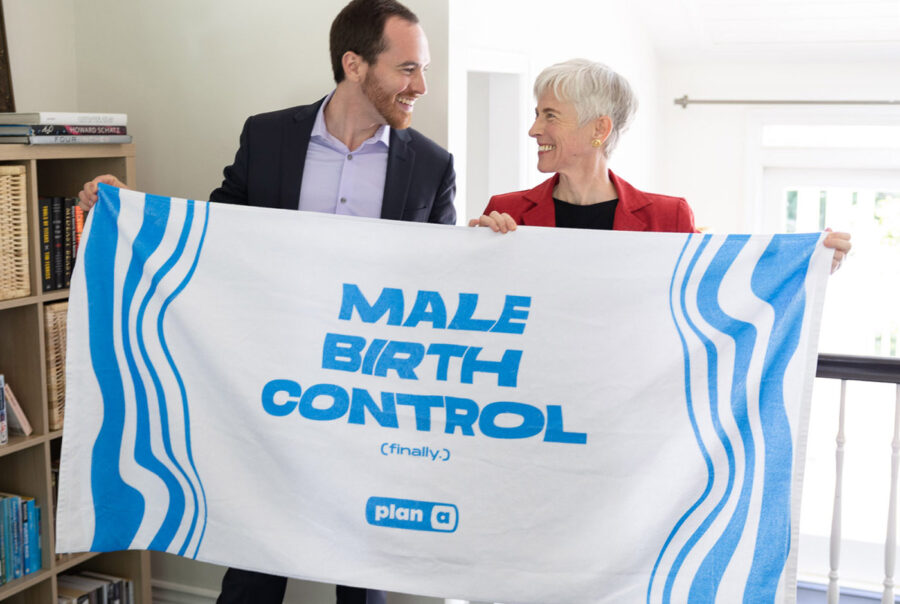Despite the availability of many female contraceptives, the unintended pregnancy rate is significant. The need and demand for new male contraceptive options have grown, and researchers have been developing various methods beyond vasectomy and condoms. This site provides resources so that you can keep up on the latest information on male contraceptive development and how you can make the most informed decisions about reproduction.
PROJECT
Male Contraceptive
Research
HUMAN HEALTH
PROJECT
Male Contraceptive
Research
HUMAN HEALTH
Project summary
Background
- An estimated 85 million unintended pregnancies occur annually worldwide, with 50% ending in abortion and 13% in miscarriage.
- Male and female contraceptive methods are often used inconsistently or discontinued, accounting for 33 million of the unintended pregnancies worldwide.
- The demand for new male contraceptives has grown over the years, and is in high demand in the U.S. after recent restrictions on abortion access
Key points
- Few male contraceptive options currently exist (condoms, vasectomy, withdrawal), each with significant disadvantages.
- With demand and acceptance of new male contraceptives growing, a number of potential options are being studied but none have yet made it to market.
- Several male contraceptives have started clinical trials, so the future is promising for new male contraception.
Parsemus' role
- The Parsemus Foundation has a history of significant advocacy and financial support for non-hormonal male contraception, including support of the Clean Sheets pill, ultrasound, Gandarusa, and Vasalgel.
- The Parsemus Foundation has supported the launch of the Male Contraceptive Initiative as well as grants through their Youth Advisory Board.
- The Parsemus Foundation launched work on Vasalgel, a non-hormonal male contraceptive. NEXT Life Sciences has taken over development of Vasalgel, which is the technology behind Plan A. For more in formation, visit the Plan A website.
Men need more contraception options
Did you know that more than 85 million unintended pregnancies happen worldwide each year? With only condoms, vasectomy, and withdrawal as contraceptive options, men have limited choices to control their reproduction. Demand for a non-hormonal, highly effective contraceptive for men is increasing, with use expected to reduce the incidence of unplanned pregnancy.
Scientists are working on a wide variety of methods for male contraception. Male contraceptive research targets the entire reproductive pathway, including spermatogenesis, sperm motility and transport, and fertilization. And progress is being made, with a few hormonal and nonhormonal options being studied in human volunteers now. We anticipate that more male contraceptives will be available in the coming years.
The Parsemus Foundation’s founder Elaine Lissner has been an advocate for the development of new male contraceptives for decades. We have supported and promoted work on the Clean Sheets pill, ultrasound, Gandarusa, and other contraceptives as well as allocating most of the Foundation’s effort toward the development of Vasalgel. The foundation has now partnered with NEXT Life Sciences to bring the Vasalgel product to market.
Plan A male contraceptive
The Parsemus Foundation and its social venture subsidiary Revolution Contraceptives, LLC have partnered with NEXT Life Sciences to continue development of the Vasalgel male contraceptive. NEXT Life Sciences announced the launch of Plan A birth control for men, using the Vasalgel technology.
Sign up for updates from NEXT Life Sciences and visit the NEXT Life Sciences Plan A website to get more information.

Vasalgel
has a new home
After a decade of research on Vasalgel, the Parsemus Foundation determined that the reversible, long-lasting contraceptive for men was ready to advance to the next level. The search for an organization with the resources needed to lead the project to the marketplace ended when the Parsemus Foundation selected NEXT Life Sciences, Inc. as our partner. NEXT Life Sciences’ mission is to develop and distribute medical technology that empowers people to choose when and whether to have a child.
NEXT Life Sciences announced its launch of the product called Plan A, using the Vasalgel technology for male contraception. The NEXT team expects Plan A to be available to the public in 2026.
For more information, see the NEXT Life Sciences and Plan A websites.
Take Action on Male Contraceptive Research
- Do your homework when selecting male or female contraception to fully understand the pros and cons of each method. Keep in mind that the “failure” rate usually refers to perfect compliance with instructions, and actual experience often involves far more unintended pregnancies.
- If you are interested in new, non-hormonal contraception methods, you can find detailed information at the Male Contraception Initiative.
- To stay informed about Plan A male contraceptive using the Vasalgel technology, sign up for updates from NEXT Life Sciences.








